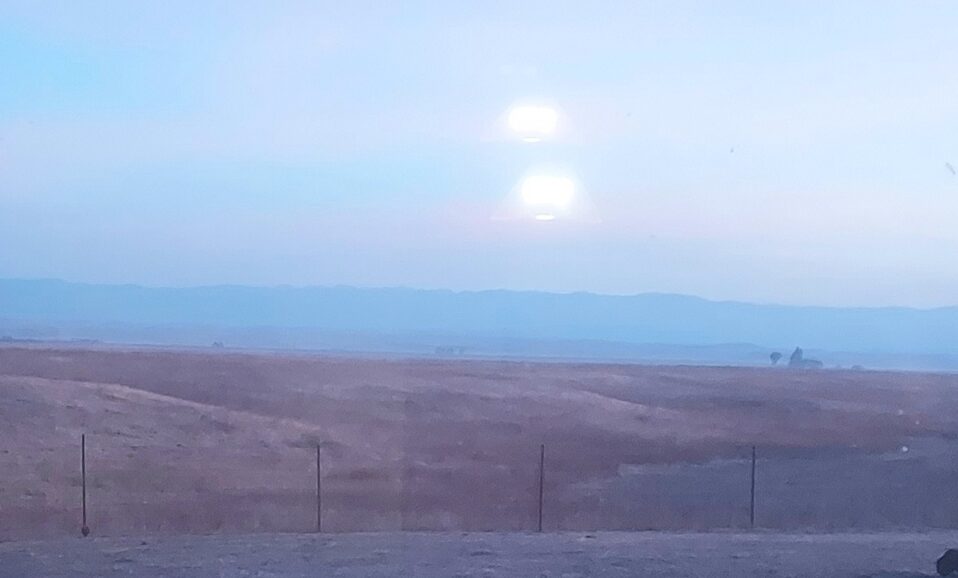- Home
- Index
-
My Books
- Book List
- Writing/Reading Articles Listing
-
My Short Stories
- What God Lost
- What God Lost — Part 2
- When Hope Was Lost
- A Battle in the Heavens
- To Live Forever
- Finding Peace
- Empty Hands
- From Fire and Thunder to Love and Submission
- The Coming One
- Forgiveness Made Possible
- The Innkeeper's Wife
- Do You Have The Right Words?
- The Lamb of God As Told by a Scribe
- What Love Is This?
- When Heaven Came Down
- Family
- Faith

From Fire and Thunder to Love and Submission
Easter Program, 2021
Must you be in control of everything?
See how Salome finds she can't, but she can trust Christ Who is.
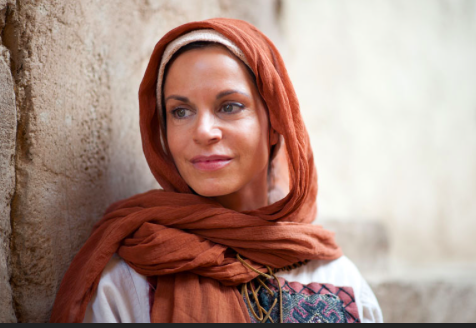
I am Salome, wife of Zebedee, better known as the mother of James and John. My husband and boys work hard to provide for us. They are fishermen.
As I work through my day, my eyes stray to the open door where I see waves lap against the shore of the Sea of Galilee. It’s not with a calming look that I watch, but with the anxious heart of a mother, who knows her family is in danger every day. The Sea brings our food for life, but it can also bring death
One small cloud can rise up and bring disaster—quickly.
My husband tells me he watches, too, but he does not watch like I do.
I have more to lose.
Even more so, when my boys started to fish.
Do they know how to swim? Not just to stay above the water, but to swim against a stormy Sea?
And how do I know they are old enough?
James, at 16, and John, at 12, have been fishing with Zebedee since they could lift the empty nets. I smile at that. For when John first tried to convince his father he was big enough to fish, he was barely out of my weaned arms, let alone able to lift those heavy nets.
After Zebedee watched him struggle with them, he told him, “Get in the boat.”
I watched from shore; my heart in my throat.
What if…
Zebedee had given me his confident nod that meant he’d take care of him and they went fishing, never to look back.
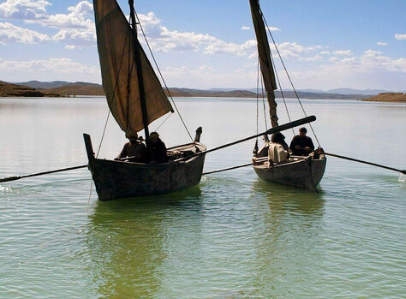
Most fishermen don’t own their own boats, but lease them from Rome. We are one of the few who do.
Fishermen form cooperatives to bid for fishing contracts. Several families partner together. And hire locals to help.
The fishing collective required thirteen men and one scribe.
Since education wasn’t priority when hunger pressed more, our boys stayed in school until they could just read and write.
Who has time to write when there are nets to mend and fish to sort and clean?
So a scribe is paid to record the catch and report to Rome. Often he recorded several fishing contracts.
Does that scribe suffer any hardship? No! He didn’t leave the beach, but watched for the fishermen’s return. Then hovered over the catch to see how much he made!
Vulture!
And if he recorded a lower catch, he earned a nice living on the extra.
Zebedee bid and earned a fishing contract. If he didn’t fulfill our contract, other fishermen wait in line to take it. Without that contract, he could not fish.
What happens without a contract?
Humph. Rome hired fishing wardens, who patrolled the Sea, making sure every man fishing paid for his contract then taxed every catch and boat and net and anchor and pinch of salt.
Every haul of fish brought Rome money.
Lots of money.
Don’t get me started on taxes!
Merchants, farmers and fishermen are taxed to grow or harvest the product, then charged again to move it andthen again to sell it.
We pay Rome to sell our own things!
We sent our fish to Magdala to be processed. We paid a crossing fee to use the roads and bridges at 2-5%, depending on the goods transported.
If we used animals and wagons, Rome charged more.
Processing required salt, wine, or olive oil.
If we didn’t salt the fish, we used a brine, requiring fruit and nuts, taxed at 50% of their yield.
To make our nets, we need flax, taxed at one-third of the harvest. We can’t afford new flax often. Instead, we repair our nets daily and make them last.
We need baskets to carry the fish. Another tax.
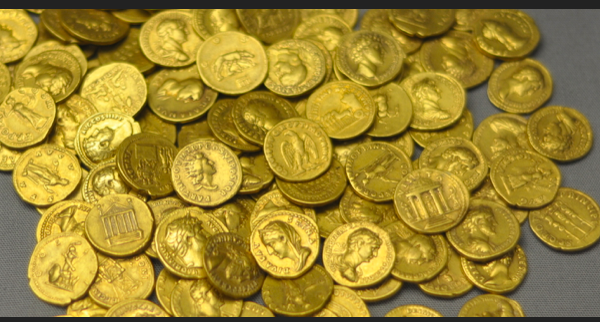
There’s the poll tax.
A tithe.
A tribute.
An impost and duty tax.
We can’t sell fish at the price that covers our cost. No one could pay it.
And so, many fishermen are in debt to Rome.
Yet in spite of Rome’s efforts, Zebedee provides well for us.
I’m grateful.
Zebedee and my boys fish at night.
Mend nets during the day.
No wonder Zebedee is a hard, salty man.
He lives a hard life. Made harder by the government that oppresses him.
SIGH
That makes me angry with Andrew and Simon Peter.
They’re partners with Zebedee.
We depend on their help to fulfilling our contract with Rome.
No fisherman can haul those nets without another boat.
We’d been hearing of John, the Baptizer for many months.
People flocked to hear him.
Who has time to listen to someone in the wilderness?
When Zebedee brought news that Peter and Andrew left to follow him, I was angry.
I turned to James and John.
“Don’t you two get any ideas!” but by their expressions I was too late.
John’s eyes sparkled with excitement.
James had a longing look.
I looked at Zebedee.
He was busy eating, oblivious to the danger. “What will you do for a partner?”
Zebedee shrugged between bites, “Hire someone from town.”
It’s easy to find someone who wants to work, but hard to find someone who works as hard as Andrew.
I sighed.
John the Baptizer moved far from my mind as we received news of a cousin to be married in Cana. We made plans to attend.
Cana is two days’ journey to the southwest of us, all uphill from us in Capernaum.
We took only what we needed. The more we took, the more Rome taxed or robbers stole.
As we reached Cana, my excitement grew; I’d see my family.
My cousin’s house was elaborate. Servants bustled everywhere.
After resting from our travels, we gathered in the courtyard and watched other guests arrive.
A man entered and looked both ways as if for danger. He belonged in some cave, not at a wedding. His hair was unkept, he wore a robe of camel’s hide. He kept his staff by his side, as if he’d corral people with it.
Who was he?
Zebedee whispered, “That’s John, the Baptizer.”
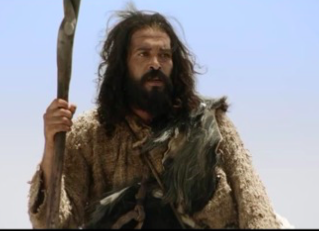
This was the man Peter and Andrew had left fishing to follow!
I peered at his face, “He looks familiar.”
Zebedee answered, “He’s your cousin.”
At my look, Zebedee continued. “Remember your Aunt Elizabeth and Uncle Zacharius?”
I gasped. “That’s their John?” I had supposed that John the Baptizer was some old scribe kicked out of the synagogue by the way people spoke of his authority and boldness, not someone this young and from our family!
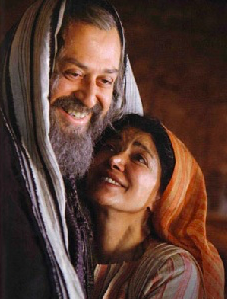
John’s birth caused quite a stir among the relatives.
Uncle Zacharius and Aunt Elizabeth had been ancient when John was born! At least to my young perspective. Even his name had brought question. No one was named John—until him.
I guess that’s where we got the name for our young John…
But this was their son?
After all that, I would have thought he’d turn out better…
Before I could fully grasp the details, another group entered.
They caused a greater commotion.
John the Baptizer embraced the new comer.
Who would cause such a stir?
I was drawn to stare at the woman who stood behind this new comer.
She looked familiar.
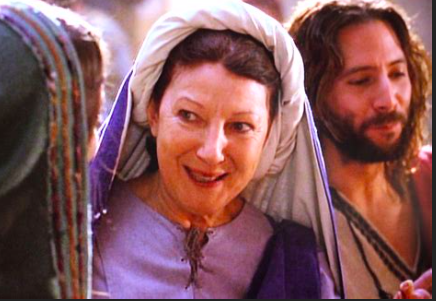
Who was she?
The woman caught my glance and rushed across the room to embrace me. “Salome!”
I swallowed the lump in my throat. “Mary?”
My sister Mary was six years older than me. She seemed never to get in trouble, not like me. She was one of those siblings who actuallytried to obey. I received some satisfaction when my mother yelled at me using my full name, “Mary Salome!” because then my sister would also get yelled at.
But when I wasn’t getting into trouble, I followed her everywhere.
When she was to marry Joseph, my memories got blurry. So many things happened that I hadn’t understood. Whispers among neighbors threatening stoning. Things I blocked from my memory.
Then Rome required everyone to pay taxes in their birth town.
Mary and Joseph weren’t allowed to travel with our family caravan to Bethlehem. After we left for Bethlehem, I never saw or heard from Mary again.
In those days at the wedding, Mary and I caught up on the years we had missed. There was much to tell.
She asked me of my husband and children, of where we lived. She drew me to talk like I’d never shared before. I told about my concerns for James and John. How fishing was a good life, but hard one.
I didn’t know I had so much to say.
Once when I paused to take a breath, I realized I hadn’t asked at all about her.
She smiled and told of the Child’s birth, how they escaped Herod’s wrath by running to Egypt.
It seemed a story meant for dreams.
Yet the dangers were nightmares.
I had trouble moving to Capernaum. “How did you survive Egypt?”
She tilted her head remembering, “The wise men’s gifts bought us food and a start. When it was safe, we returned and settled in Nazareth. But the rumors of scandal followed us. We were ostracized.
“If Joseph hadn’t been such an excellent carpenter, we would have starved. He taught our boys those skills. While there, Joseph died.”
I couldn’t imagine life without Zebedee. He could be annoying, but life without him? How could I go on? I couldn’t find a word to say.
Mary swallowed and forced a smile as she looked up.
Her expression changed to determination. “Just a moment.”
I followed her glance to see Jesus.
She crossed the room and whispered to Him.
It was then I realized He was her son.
The story of the angel, the escape to Egypt, all showed how God was protecting this Man.
Not only had John the Baptizer come from our family, but this special Child. What was our family becoming?
My thinking was interrupted as I watched Mary and Jesus interact.
His response seemed to hurt her, though I couldn’t hear what was said. She spoke to some servants then returned to where we sat.
She shrugged at my unspoken question. “I told Jesus they had run out of wine.”
It wasn’t His wedding.
It was just like Mary to tell everyone what to do.
Growing up, she made me do things for her.
Often, I would not. I smiled. We do not change much, do we?
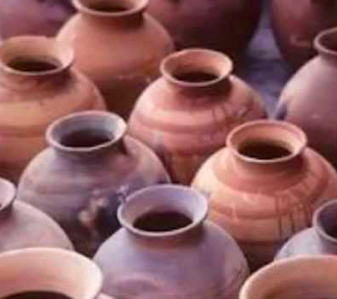
It wasn’t too long afterwards when Jesus approached the head servant and pointed to the empty pots.
He directed the servants to fill the vats with water from the courtyard well.
When every vase was filled, the head servant spoke to Jesus.
Jesus nodded to the doorway where the host was.
The servant carried the filled vase to the host.
I followed, curious to see how this water would be received.
Perhaps he’d enough of yesterday’s wine not to notice.
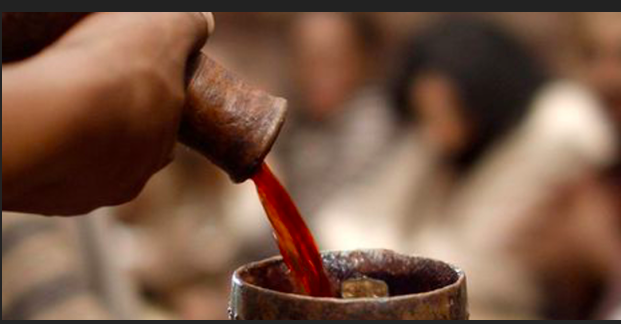
The head servant approached his master hesitantly and handed him a dipper full of the vat’s contents.
The man gulped with closed eyes and smacked his lips.
“You’ve held back the best wine for today!”
The servant visibly relaxed his shoulders.
I breathed deeply, not realizing I’d been holding my breath.
I went to one of the vats that still sat around the well. Taking a dipper, I sipped. The taste was not like the cheap wine often used later in weddings. Its smooth, rich taste slide down my throat.
I tasted from another vat.
How Rome would envy all the taxes they’d notreceive from this!
I felt intoxicated by the thought!
I turned to Mary who had followed me. “How’d you know?”
She smiled, “You don’t live with God for 30 years and not feel His Spirit stirring.”
I sat on the well’s edge. Live with God.What would it be like?
In the next few days, my spirit felt drawn to this Man like a thirsty man craves water.
I couldn’t explain this longing.
Jesus exuded peace, confidence, decisiveness—without being abrasive, rude or overbearing.
We had come to celebrate our cousin’s wedding, but I was introduced to God.
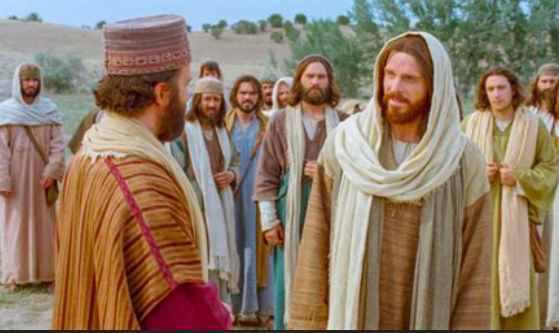
I learned more about God from Jesus than I had learned my entire life standing outside the synagogue every Sabbath, listening to the Law read and explained. (Women weren’t allowed inside the synagogue.)
Jesus didn’t give long lists of rules that no one could do, like our teachers.
But He applied the Law; how it touched every part of life.
He was real.
He made God real.
Crowds gathered wherever He was.
And clung to His every word.
When I wasn’t listening, I watched others.
James leaned forward grasping every word as if it kept him from falling over a cliff.
John made sure he was right there in front to hear.
Zebedee, tough as he was, bonded to Him. His face reflected a peace that had not been there before.
I asked about it when we were alone.
He grabbed my shoulders and looked into my eyes, “He’s the Messiah. He’ll deliver our people from Rome.”
Zebedee’s confidence lifted the weight of Rome’s taxes from my shoulders.
I felt giddy.
But the wedding couldn’t go on forever, even if Jesus could make the wine last that long.
We returned home with promises to stay in touch.
But life happens.
Fish must be caught.
And we must eat.
We returned to normal life.
It was good to have Peter and Andrew return with us.
My boys had a different look on their faces.
I asked Zebedee about it.
“Jesus gave them a real purpose. They must commit.”
I didn’t know what that meant. And if I had, I’m sure I couldn’t have kept them from it.
But as a mom, I might have tried.
One day the boys returned from fishing. “John’s imprisoned!”
I paused rolling out my flatbread. “John, the Baptizer?”
James nodded. “He told King Herod he was wrong to marry his brother’s wife.”
Calling something wrong was punished? Where was the justice?
I felt empty. I didn’t understand my grief.
Zebedee wasn’t good with words, but held me. The smell of the Sea was strong as his heart beat against mine.
I should have known then what was coming.
But a mother could wish for a good tomorrow, can’t she?
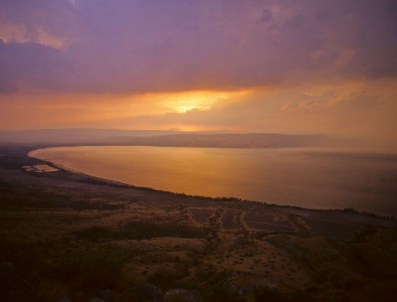
The sun was sinking over the sparkling waves. The flash of its light bounced into the dark room where I made the flatbread for the evening meal. I heard steps of only one returning. No laughter. No bantering of the boys.
I looked to see Zebedee enter the house alone.
My heart tightened. “Where’s the boys?”
Zebedee swallowed. He tried to speak but had to clear his throat. “Jesus is here.”
I could not make my mind accept his next words.
“He asked the boys to follow Him.” He licked his lips in an effort to control his voice. “They did.”
Don’t they remember what happened to John the Baptizer? This couldn’t lead to anything good.
The tangible seemed the only thing I could focus on. “What about dinner?”
Zebedee looked at the table where flatbread waited. He shook his head, but when he saw my expression, he consented. “I’ll eat a little.”
Dinner was quiet— no re-telling fish stories or news of the neighbors.
Just quiet.
Zebedee kept his head bowed and chewed.
I choked down a mouthful.
I was thankful it was over. I cleared away the meal and went to bed.
Zebedee lay beside me, shifting for a comfortable position.
“What about Peter and Andrew?
His voice was almost a whisper. “They left too.”
“What about the fishing contract?”
“I’ll ask Thaddeus’s boys.” Zebedee squeezed my arm. “We still have those we hired.”
It took a lot for Zebedee to ask for help.
It would take a lot more to make it through the coming days without James and John.
And not just for fishing.
I avoided getting water when other women would be at the well.
I didn’t want to feel their judgment of us as unfit parents, who allowed our boys to follow Jesus rather than take care of us.
Was it my choice they’d left?
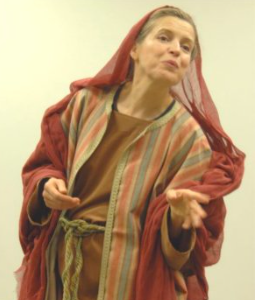
It was not a common time to get water, when I met Peter’s wife, Abigail. She looked like she hadn’t slept in days.
“What’s wrong?”
She started to cry. “Mom’s sick.”
Rina was my best friend. “I’ll bring a meal tonight.”
Her eyes showed gratitude.
I took a meal and stayed to talk.
Abigail walked me to the door. “Thanks for coming.”
I returned the next morning so Abigail could attend synagogue for the Sabbath.
There wasn’t much for me to do. I offered Rina sips of water, cooled her face and arms with cool cloths and waited. Most of the time she slept, but when her eyes flickered open, I sat by her side and held her hand.
Waiting is hard when there’s nothing to do.
I ground some wheat for flatbread and brought the fire’s embers to flame.
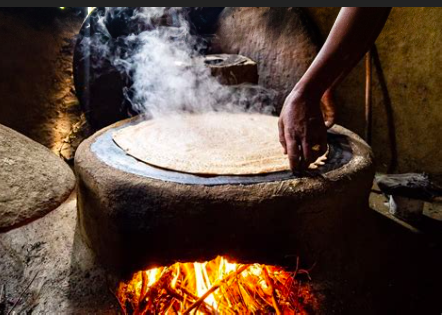
The sun was low in the sky, long after time for the synagogue to end, but still Abigail did not return. What could be keeping her?
I pushed the flatbread away from the flames to keep them from burning.
As I checked on Rina, Abigail entered, breathless. “Sorry, I’m late. The crowds at the synagogue made it hard to get away.
“Obed caused problems, like he does. He somehow got inside the synagogue—you know how the scribes have nothing to do with him—Obed shouted and disrupted as Jesus taught but instead of sending him away, like the scribes would have done, Jesus looked at Obed with such compassion.
“You know it’s hard to see Obed as human—yet Jesus touched him.
I’m not even sure he’d been touched by anyone for years.
Not even his mother claimed him.
Obed writhed and screamed under His touch.
Jesus rebuked the demons and cast them out of him.
What a transformation!
It was hard to remember Obed as the crazy man; he sat at Jesus’s feet and worshipped.”
Abigail wiped a tear from her face. “Made me feel the nastiness of my own heart—how I couldn’t care about Obed.”
I nodded, absentmindedly.
As soon as I’d heard Jesus was there, I knew James and John would be here too. I’d see them again.
Movement over her shoulder caused me to look through the open door.
A group came.
I squinted for the sun’s glare made their faces unrecognizable, but I recognized James and John’s gait anywhere. And there was Peter.
I was relieved. Rina would see him.
And there was Andrew. He always seemed forgotten when Peter was present. But he does more behind the scenes than anyone.
Zebedee had come with them. He’d known I’d be here.
But who was that? His gait and silhouette resembled James, for that was all I could see with the sun’s brightness behind them; He looked so much like James only a little taller.
Then I remembered, it was Jesus.
James and especially John gave me a hug. I hugged them like I’d not let them go.
It had only been a few weeks since they had left but felt like an eternity to me.
They had changed much in those few weeks. John especially seemed more like a man than a child. James stood taller.
What made it so?
Rina stirred.
I hurried to see what she needed.
I didn’t realize the others had followed me until Peter blurted, “How long have you been sick?”
He turned from looking at Rina to raise his eyebrows at Abigail.
Jesus stood beside me.
I stepped aside as Jesus took Rina’s hand, “Rina arise.”
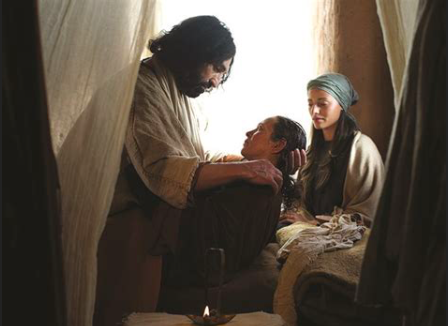
Before my eyes, she changed. Her face lost its flushed pink and changed to her normal sun-kissed brown; her weak, frail form that could not even hold a cup to her lips, now stood with vigor and strength. Rina wobbled to gain her balance, then stood firm. After standing a few moments, she bustled to the fire to finish the flatbread—like I should have been doing.
But I just stood there.
For the second time I wondered what kind of Man Jesus was. He could turn water into wine and bring someone almost dead to health. Even demons obeyed Him. Jesus spoke—and it was done.
And He had called my sons. And they followed willingly.
My face must have shown my wonder.
I caught His eye.
He nodded as if He read my thoughts.
I nodded, hesitantly at first, but with more conviction.
This was a Man worthy of my sons to follow.
But more than that, I must follow Him too.
In the days that followed, I followed Jesus in Capernaum and the surrounding areas, soaking in His words, wondering at their simplicity yet depth.
The Law had always seemed complicated: Don’t do it this way. Do this. Who could keep all of them?
No one!
All the Law proved to me was that I needed God.
Jesus lived a wholeness, a rightness—that I lacked.
Jesus showed me seeking God was ALL THERE WAS TO DO.
As Jesus performed miracle after miracle—making the blind to see, the deaf to hear, the lame to walk, He showed Who He Was—the Son of God.
But I wasn’t getting it.
All I saw was the Messiah Who would deliver us from Rome’s taxes.
Somehow I missed He wanted to deliver me from my own self.
James and John followed Jesus everywhere.
Jesus called others too.
But Jesus favored James and John. Often taking them aside, with Peter, to explain something.
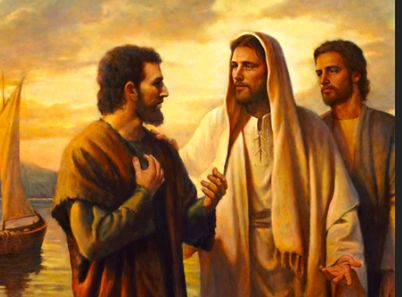
Jesus sent his disciples out by twos to proclaim His coming kingdom. When they returned, John’s eyes sparkled and James looked more confident than I’d ever seen him. They shared miracles they had done.
They would be part of His kingdom.
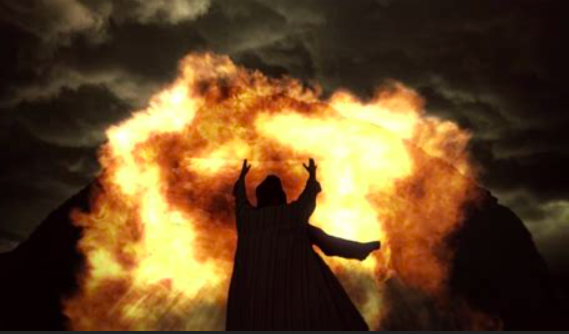
As they had traveled toward Jerusalem, James told me how one Samaritan village didn’t receive them.
I interrupted. “No surprise there. They’re worthless, unable to even stay pure—”
James interrupted, “We told Jesus to command fire to consume them.”
I nodded. That’s my boys!
But Jesus told us, “I didn’t come to destroy lives, but to save them.”
I shut my mouth.
James shrugged sheepishly. “I was rebuked.”
His words came back later, especially when I felt like destroying those who tortured my boys.
I must pray for their salvation, not send fire on them.
But I had not received His Spirit yet. And fire was all I knew.
When news came that John the Baptizer was beheaded, surely that was time for fire!
John was so young. Hadn’t he proclaimed truth?
Shouldn’t God protect His own prophet?
I had only questions without answers.
Jesus didn’t answer them. He just kept doing good.
Is that what God expected? That we just do good, and hang the results!
As I followed Jesus, I noticed how angry the religious leaders were with Him.
How do you not like God?
Jesus explained, “Light cannot exist with darkness.”
His light pierced me to show how dark my own thoughts were.
Though I wanted to hide from His presence, I was also drawn to know Him. What an intense, internal struggle!
If only God would remove the darkness.
I could not do it myself. Didn’t the Law already show me that?
Jesus spoke about His kingdom. How the merciful would have mercy.
Those who mourn would be comforted.
I wanted to be part of that kingdom.
As we walked to Jerusalem for the Passover, I called James.
He fell back to walk with me, though he looked like he wished to stay beside Jesus.
I swallowed my hurt and asked him what I’d been thinking. “You’re one of His chosen for three years now. You want to be a part of His kingdom, don’t you?”
James nodded, hesitantly. He had no idea where I was going with this.
I persisted, “To be part of His kingdom, you’ve got to ask Him for it.”
James shook his head, “Mom, I’m not sure—”
“Of course you can,” I hurried to catch up with Jesus.
The other disciples made room for me.
Jesus turned to me, “What do you wish?”
I swallowed, now that I was before Him, was this something I should ask? I looked into His face.
He waited.
“Command my two sons sit on Your right and left in Your kingdom.”
Jesus smiled.
I relaxed, that hadn’t been so hard to ask. He would grant my request— after all we were family.
But then He answered, “You don’t know what you’re asking.”
He turned to James and John, “Are you able to drink the cup I’m about to drink?”
John had joined us.
Both James and John responded, “We’re able.”
Jesus’s expression was one of sorrow.
I grew afraid.
But then Jesus said, “My cup, you shall drink.”
I smiled at James, confident I’d done the right thing.
But Jesus continued, “But to sit on My right and left—this isn’t Mine to give, but is for those prepared by My Father.”
I was confused. Couldn’t Jesus tell His Father what He wanted?
Didn’t He tell us to ask what we wanted, in His will, and He’d give it to us? I was just asking. Shouldn’t family be given priority?
As I considered His answer, his other disciples pushed forward, almost thrusting me away from Jesus.
As I fell behind by their pushing, I had to calm the fire that burned within me.
They were just angry they hadn’t thought of it first.
Jesus drew them together by the side of the road. “Gentile rulers lord over them. It’s not this way among you, but whoever wishes to be great, shall be your servant, and whoever wishes to be first shall be your slave; just as the Son of Man did not come to be served, but to serve, and to give His life a ransom for many.”
Didn’t we serve the Romans?
Wasn’t it our turn to be first?
I didn’t understand.
I still thought of my own will; I wasn’t listening to God’s.
We arrived in Jerusalem.
I hated crowds and the city. No sea breeze would touch my face here. Instead sweltering sweat dripped from my face as I sat in our tent.
Smells of many people and animals crowded together made me sick.
I swished flies from my face and tried to breath.
And the noise! I missed the calming waves on the beach. All the loud noises here! In a tent close to us, a baby cried all night long. How is anyone to sleep?
In the midst of all this, James and John visited our tent. I was pleased to see them. They both gave me a hug. Always John’s was longer, like he didn’t want to let go. Or maybe because I wouldn’t let go of him. He was my baby after all.
“Sit. Eat some grapes. I bought them in the market place.”
They seemed uneasy and would not sit.
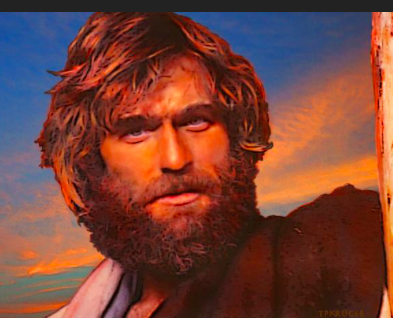
James rocked on his feet. “Dad and Mom.”
By his tone, I knew his news was not good.
My stomach tightened and I stopped chewing the grape I had popped into my mouth.
He licked his lips as if finding words and started again, he looked at Zebedee. “Dad,” His words flew out of his mouth as if he wouldn’t have courage if he didn’t spit them out. “We won’t be eating the Passover with you.”
The Passover was a family celebration. We remember what the Lord did for our people in saving us from Egypt’s bondage. No one wanted the Death Angel to visit and take their first-born son!
How do you celebrate the Passover without your first-born son present?
I choked on my grape.
We’d always shared the lamb with all our family. Since the Cana wedding we had shared the Passover with Mary, Jesus and James, her son.
As if John needed to explain, he added, “Jesus wants just his disciples with him.”
My heart wretched. First Jesus calls both my sons to follow Him, now He rips them from my home.
Beside me, Zebedee slowly nodded his consent.
I bite my lip and tried not to cry. It was all I could do not to scream, “Shouldn’t family come first with the Passover? Must Jesus change everything?”
But I kept silent.
James kept his eyes lowered and would not meet mine.
John hugged me and whispered, “Sorry, Mom” as they turned to leave.
I watched them leave.
I felt like the Death Angel had taken my son, and not only my first-born but both my sons.
Zebedee held me as I wept.
If I had known what was coming, I would not have stopped.

It was our custom to go as a family to pick out the lamb from the Temple. The taxes to buy one in Capernaum and transport it across Rome’s roads would probably be equal to buying one at the Temple. The price would be high. Everyone needed a lamb.
It’d require much of our savings, but we must remember what the Lord did for us.
The line was long and crowded.
I brushed against Zebedee as I tried to stay close to him.
His money bag, though concealed beneath his cloak, bulged with all our savings. I hoped it would be enough.
As each purchased animal was selected and carried away, its pitiful bleating rose above the bartering. The noise was deafening.
Though crowded, I felt alone not having James and John by my side.
What would I say when family members asked why they weren’t with us for the Passover?
It seemed enough to say, “They’re with Jesus,” but was that a “good enough” reason for me?
My mind tried to convince my heart that it was.
What would Mary say? It was her Son who was dividing the family.
She’d be eating with us. I’ll ask her.
Pharisees and Sadducees watched from an alcove in the Temple courtyard. Their scrutiny made me feel like I’d already done something wrong.
I shivered and looked away.
A loud crash made me turn.
Jesus leaned over the overturned tables of those collecting the monies.
All noise stopped except for a single coin that rolled across the marble floor. It finally came to stop.
All was still.
I held my breath.
This was a holy place.
No one dared question the rulers’ domain.
Jesus spoke in a low, calm, but dangerous voice, “My House shall be a house of prayer, but you—" He pointed to the alcove where the rulers shrank before His pointed finger, “You have made it a robbers’ den.”
The religious leaders eyes widened at the insult.
Those merchants, who had been sitting behind the tables, stood against the wall, staring at the scattered money.
Jesus gestured for the merchants to leave.
They looked first at the Pharisees and Sadducees.
They gave a permissive, hurried nod.
The merchants almost fell down the Temple stairs in their effort to leave. They did not look back.
We were next in line. How would we purchase our lamb?
Zebedee nodded to Jesus and approached the pens where the lambs were held for sale. He counted out a fair amount of coins for the lamb, place them on top of the pen, selected one, lifted it to carry around his neck and walked down the stairs.
I ran to catch up with him. “What just happened?”
“Jesus saved us from spending our last coin.”
If that was all He did, I was thankful.
But I think the rulers would not forget this.
Isn’t this how John the Baptizer had lost his head? For standing for what was right?
I shivered. I did not want to know where this action would lead.
That Passover night felt more than symbolic. The Passover was to remember what God did for our people in Egypt. Our ancestors put blood over the doorposts and ate ready to leave Egypt. When the Death Angel passed through Egypt, only those with blood on the door were spared death of their firstborn.
Our night of remembrance seemed more than remembering; like I was reliving it. I shivered.
“What is it?” Mary asked.
I nodded to the table where three empty places were set, where James, John and Jesus should have joined us, “Has the Death Angel struck tonight?”
She nodded. “Jesus has been different since He’s come to Jerusalem. I don’t like it.”
I was sorry for my selfishness. At least I had Zebedee with me.
Mary had no one to support her in her loss.
Her son James had nothing good to say about Jesus.
We finished the meal, saving nothing. Then went to bed.
I lay in the sweltering heat of our tent, wishing sleep would come.
It did not.
I crept outside, hoping to feel a cool breeze.
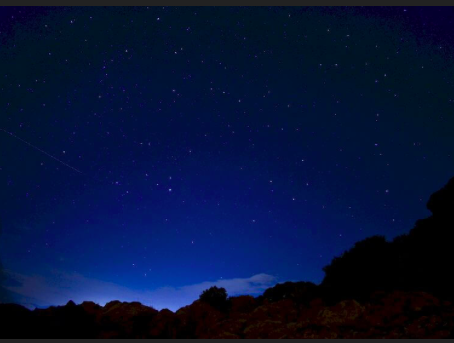
Mary sat outside her tent, beside ours.
I sat beside her.
We watched the stars come out, but no moon would light the night that night.
An unknown dread covered us like a blanket.
I reached out to hold her hand. “You’re cold!”
I moved closer to hug her.
We sat like that for a long time.
Finally she spoke.
I had to lean forward to hear.
“I use to think of my great loss when Jesus would marry. My son, my first-born, leaving me to start His own family.
“When my James married— you don’t know how hard it was to let go of your son and be second to his wife— but that’s how God designed it. I love his wife; their children are wonderful! But with Jesus,” Mary paused long. “He was so perfect. So loving. So good.” She swallowed before she could continue. “I couldn’t even consider losing Him to another.”
She gulped air. “What a perfect father He would be! I mean, what son, does not marry and have a family? I knew He was different and all, but I still wanted Him to have what we had. You know?”
I nodded, but had to swallow. I’d been thinking about my James and how he must marry soon. I already felt the loss. He was pulling away from me.
But Jesus was already well past the time to marry. I hadn’t thought of what Mary must be feeling. “You think He’ll marry?” I thought of all the women who followed Him. That Mary, who hung on Him, washing His feet with her hair and kissing them. Surely He would know better than to choose her!
Mary sighed. “I have learned in raising Jesus, I cannot guess what God will do and nor should I plan what Jesus must do.”
She squinted as if seeing in the past. “Remember when His own people were trying to take Him in custody saying, ‘He’s lost His senses’?”
I nodded. A pit in my stomach returned as I remembered that time. The Jerusalem scribes had accused Him of being possessed by Satan.
Mary continued, “I wanted to spare Him insult, to protect Him. I called Him aside to caution about what He was doing.”
Jesus did not even speak to her, but rebuked her publicly. “Who are My mother and brothers?” He had looked around the room, “Behold My mother and brothers! For whoever does the will of God, he is My brother and sister and mother.”
Mary explained, “I felt betrayed. Hadn’t I nursed Him, even as we ran from Herod’s wrath? Hadn’t I made sure He was taught by a scribe in our village? I could have dwelt on my hurt—I know my James did. But I had to remind myself this was His ministry. He was God, after all. And He would do things differently than what I wanted. That’s difficult for a mother to accept.”
I considered Jesus’s ministry through Mary’s eyes. As a mom, you live your life doing everything for your child. But as they grow up, you find how very inadequate you are to do anythingfor your child.
Jesus’s childhood must have been a constant rebuke to Mary of how to love perfectly.
Mary laughed, “His ministry was not what I thought. Who could have guessed, even with the Scriptures telling us, that He would show so many people His Father.”
I turned to look at her at this emphasis.
She smiled, though it was hard, “Yes, His Father.Not Joseph. You were too little to understand my angel visit. But God united His Seed with man in me. But I had to learn to submit to God in ways I knew nothing about. When His Son started His ministry, I had to let go and allow Him. That was hard as Jesus grew when Joseph was alive. That was even harder after Joseph died.”
She squeezed my hand, almost like I needed the reassurance.
I squeezed hers back, and swallowed. How selfish I had been with my boys as they had followed Jesus.
God was opening up their ministry, and it wasn’t fishing. I must let go.
She sighed deeply. “But tonight,” she paused unable to finish. “I feel darkness weighing heavy on my spirit. My Son is struggling, but I can do nothing to help.” She broke then and wept.
All I could do was wrap my arms around her and weep with her. Was that why I had felt the oppression during the Passover? Had I felt that for my own sons, too?
I don’t know when we finally returned to our beds, but it was after many tears.
The sun’s rays broke through the tent’s opening, but it didn’t dispel the gloom of the night. We had no reason to enter the city that day, but for some reason, Mary felt compelled to go.
I would not let her go alone.
When we entered the gate, we knew something was wrong. My heart started beating faster. I clutched Mary’s hand. It was cold.
The courtyard was vacant.
Not a person was there.
As we walked the streets we felt, more than heard, the crowds ahead of us.
We reached the crowd, and became a part of them.
They compelled us forward in one direction.
Roman soldiers pushed the crowd aside to make room.
As the crowd parted, we saw Jesus.
Mary shook.
I clung to her.
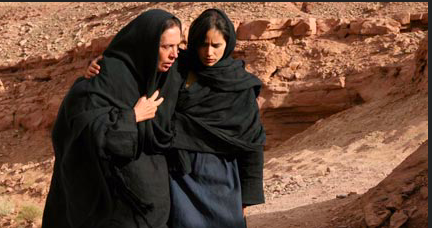
Jesus showed no family resemblance today. His stance was hunched over like an old person. When He stumbled closer, I saw why.
His beard had been torn from His cheeks.
Thorns dug deeply into His forehead.
His face was covered in blood, barely allowing Him to see.
He could barely place one foot in front of another.
A soldier prodded him with the blunt end of his sword.
Before him, another carried the beam for His execution.
In spite of His suffering, He noticed us, “Daughters of Jerusalem, stop weeping for Me, but weep for yourselves and your children. The days are coming when you will say, ‘Blessed are the barren, and the wombs that never bore, and the breasts that never nursed.’ Then you will say to the mountain, ‘fall on us’ and to the hills, ‘cover us.’ For if they do these things when the tree is green, what will happen when it is dry?”
Mary trembled beneath my embrace.
I held her so she wouldn’t crumble, not sure how I kept standing.
The Roman soldier prodded Jesus to keep walking.
He passed us.
Then we saw His back. No flesh was on it.
The exposed muscle oozed blood. His movement opened areas where the blood had stopped but now poured again.
I don’t know how we stumbled to follow Him.
Maybe the crowds pushed us forward. But we did.
We did not consider not going.
I’m not sure who stumbled more to that hateful hill, Jesus or Mary, but I picked her up too many times to count.
The crowds wouldn’t allow us to stop.
When we reached the hill, soldiers barricaded an area so we could not stand too close, but we could watch the horrors of that torture—no mom should have to see for her son.
We heard the nails pound through His feet and hands.
With each hammer, Mary sunk deeper to the ground.
When they erected the cross into its hole, Jesus’s entire body jolted from the impact.
His sharp gasp made me struggle to breathe.
For each breath, He pushed against His feet to raise His body up to gulp air.
Then He would drop down as He exhaled.
Each gasp excruciating.
Like a fish out of water, pants shallowly for life.
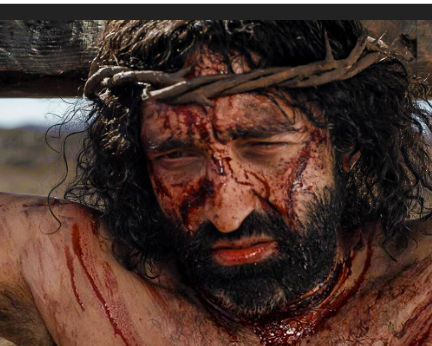
I found myself trying to breathe for Him. I felt exhausted.
My heart constricted.
My chest couldn’t get air.
I did not want to watch, yet felt compelled to see if He would take another breath.
Never did we consider leaving.
Would you leave your dying Son?
But to watch the pain each breath took —would kill any mom.
I tried to shield Mary from watching, but she insisted on looking.
When I felt an arm around me, I looked to see John.
His hair was askew, his eyes blood-shot. He looked like he had gone through some demon-possessed torture.
I was relieved to see him. I hugged him like I wouldn’t let him go.
I didn’t think I had any more tears, but they came again.
“Where’s James?”
His eyes registered hurt.
“He’s not hurt?” I prodded.
He could not voice his answer, but shook his head.
He buried his head in my shoulder and wept.
What horrors had he faced with Jesus last night?
I could barely understand when he spoke.
His words came in a sob. “He asked me to pray with Him. I fell asleep. Mom, I couldn’t even pray when He needed me. What kind of man am I?
“When the soldiers came, at least Peter used his sword. I ran away. Later when they took Him to Caiaphas, I slipped in to see what they would do. They beat him, Mom. And I stood there watching.
I did nothing.”
I hugged him tighter. I could not find words to comfort.
His entire body shook against me.
I realized in those three years with Jesus, he had grown from a 12 year oldboyto a 15 year oldman.
His life was changed forever.
Nor could I take away this pain, for they were pains of a man.
No hug could erase failure, betrayal, helplessness. Nor would words help.
I was helpless.
No mother wants to be helpless.
I glanced at Mary with greater understanding.
Helpless to help her Son.
John pulled away from me, wiped his face with the back of his hand and faced the cross.
He gulped as he swallowed to control his tears and breathed deeply.
Jesus noticed our helpless little gathering.
In spite of His intense pain, he spoke, each word requiring Him to lift off His feet and push against His raw back where the cross rubbed His flesh. “Woman,”
We leaned closer, His voice raw. “Behold your son!”
Mary gasped.
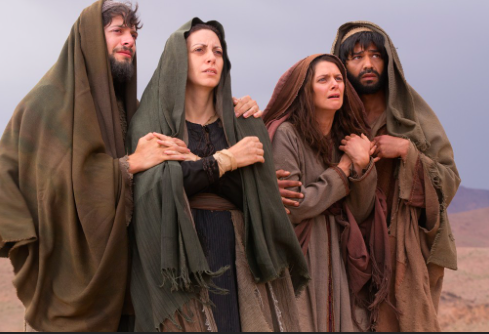
But Jesus was not finished. He looked at John.
His love for my son came in spite of His pain
His words came out raspy. His throat dry. “Behold, your mother.”
Out of the corner of my eye, I saw John stand taller.
He drew his shoulders back. He returned Jesus’s look and nodded.
His need for forgiveness, his sense of purpose, his need for a mission, all completed by those words spoken from the cross to my son.
John bent down and squeezed Mary.
She turned and sobbed in his arms, sobbed like she would never stop.
My tears started again.
How did I have any more?
Time stood still.
It became harder and harder for Jesus to breathe.
Without air He would suffocate.
The sun had risen that morning, bright and shining.
But now, though only mid-day, darkness crept over the world, worse than any moon-less, starless night.
Thunder rumbled, vibrating the ground beneath us.
We sat there unable to see, afraid to move.
I felt for John, unable to see him.
He took my hand.
Through the darkness, we heard Jesus’s words of intense agony, “My God, My God, why have You forsaken Me?”
I felt John cringed and Mary began anew to weep.
In a faint whisper, we heard Jesus say, “It is finished.”
We sobbed.
I don’t know how long we stayed there beside that cross.
Rain fell.
The crowds left.
There was nothing more to see.
Rome usually left the corpses on the crosses for the birds to pick them. A messenger came. “You can’t leave the bodies; it’s the Sabbath.”
I wanted to spit in his face!
Our leaders would remember the Sabbath, without the One Who gave us the Sabbath?
The Roman commander, to keep the peace with the Jews, gestured at the two criminals on either side of Jesus.
The soldiers broke their legs, to speed their death.
When they came to Jesus, the commander stopped them. He took a javelin and thrust it into His side. When he withdrew it, water and blood poured out.
The commander charged his men, “Take the men down.”
John helped Mary and I stand, then guided us to our tent.
I don’t even remember how we walked through the city and came to our tent.
Mary stayed with us. Who wanted to be alone now?
My James came. His eyes hollow. His hug didn’t reflect his normal enthusiasm. He seemed distracted.
I never heard what he did during that hateful night. Nor would I ask.
I don’t even remember what we did in those three days and nights. Time moved like a heavy fog. Nothing clear. All bleary.
Things done only by habit, not thought.
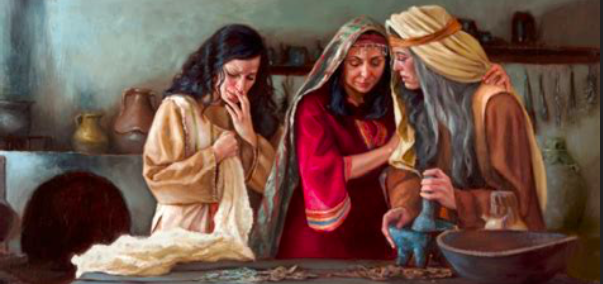
The Sabbath came.
We did not work.
Nor did we eat.
Though I think I made flatbread, I can’t remember.
No one ate.
I don’t even think anyone spoke that entire day.
All lost in thoughts, grief and numbness.
It was Sunday, after the Sabbath.
Mary approached me. She held a basket with herbs and oils. She would prepare His body for burial. “Would you come with me?”
I would not allow her to go alone. I grabbed my cloak. “Joseph from Arimathea gave his tomb, know where it is?”
She nodded.
Mary Magdalene and Joanna joined us as we left our tents.
It was cool and dark.
What about the Roman guard? Would they allow us to enter the grave?
John had told of a stone blocking the opening too.
How would we prepare the body?
I glanced at Mary. She struggled to keep herself composed.
I forced my feet to keep walking.
Preparing someone for burial seemed so final—especially someone so young and good a person as Jesus.
How could we have been so wrong about Him being our Messiah?
My thoughts were in turmoil. How do I comfort Mary?
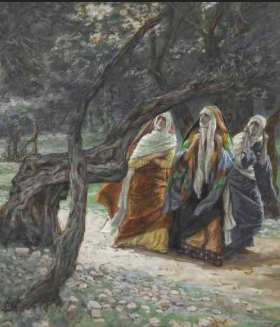
In our haste to get there, busy with our own private thoughts, I was breathing hard when we reached the tomb.
The sun had started to scatter its light over the garden.
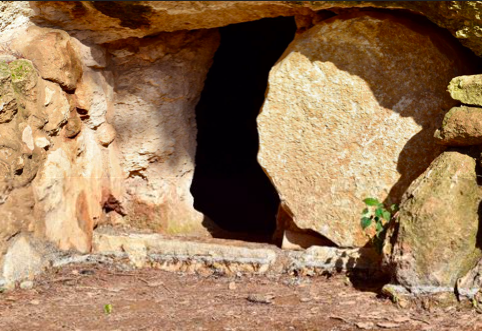
No guard stood at its entrance.
The stone had been rolled away from its opening.
We were confused.
Mary paused at the opening, but I walked inside, bracing myself to see His dead form.
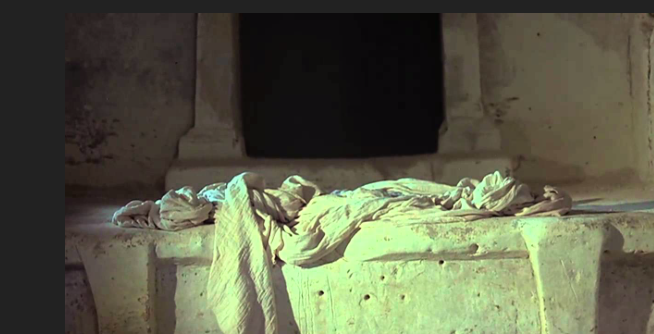
On the stone table where the body should be the linen that Joseph had wrapped the body lay in the form of His body, but it was flat, without form.
I touched it cautiously. “Mary.” My voice shook for I was afraid and angry at the same time.
The body should be here.
Where was He? Who would do this to Him?
I heard Mary stumble to stand beside me.
Her voice was almost a cry, “Where’s His body?”
By answer, two men appeared.
Their light blinded me. They were not men but angels.
We fell to our knees and bowed to them.
“Why do you seek the Living One among the dead? He’s not here, but has risen. Remember how He told you He must die and the third day rise again?”
I must tell James and John.
I don’t remember walking back, my feet flew over the same path that I could hardly walk that morning.
Jesus appeared to His disciples while they huddled together afraid.
There was no mistaking His voice, His eyes, His stance—though He still looked like James… He said, “peace.”
No condemnation.
No rebuke.
Only complete love and restoration.
I watched James and John stand taller as He brought them back into His circle.
During those final days He stayed on earth, I’m not sure He could break away to pray. His disciples, especially my John, soaked up every moment with Him.
The only way He could leave was when He finally did.
God took Him in the clouds.
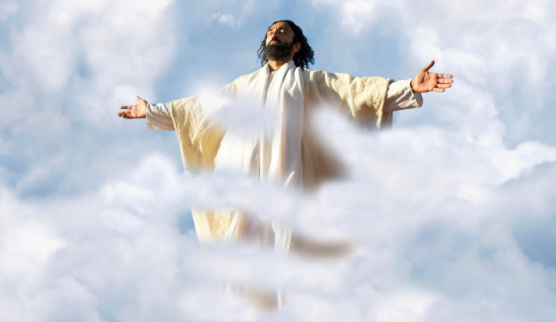
But He sent us His promised Spirit, Who would guide us in His way.
Fishing would not hold them.
My boys would never be the same.
His disciples would follow Him anywhere.
Their fervor would not wane, but their arrogance was gone.
They remembered what they had done that night. They knew what they could not do. They depended on Him for what they should do.
They were given a boldness to tell what Jesus had done.
Not only for them, but for the world.
We could stand before God whole, complete, sinless, because of what Jesus had done on that cross.
Jesus was indeed the Messiah, not of Rome’s tyranny, but of our own heart’s. He’d save us from our own wickedness.
My boys were changed.
No longer wanting to strike down wrath on an entire city—especially my John, spoke of loving like Jesus.
James stayed in Jerusalem helping Jews know Jesus.
The rulers hated those followers of Christ!
You see, it’s not enough to acknowledge that Jesus died on the cross— for those rulers knew He did.
But you must recognize Jesus died for you.
No one could ever be good enough for God.
That’s what Jesus did.
The rulers would never admit that.
They pressed Herod to do something, to quiet their impact.
That’s always our problem. We feel we must do something to be worthy of God’s acceptance.
Herod imprisoned my James.
I say, “my James,” but I do not own him.
He is God’s and I have learned I must give him back to God.
When I did, I could have peace about what happened next.
James was beheaded.
I could have wished for fire on Herod.
Instead, I pity him.
He does not know God and will stand before Him without Jesus’s blood to save him.
James became the first martyr, after Stephen.
I could not have watched, as did Mary, and God spared me that pain. No son should die before their mom.
But he was God’s, after all.
I shake my head at my bold request that my sons sit at the Father’s side.
Who is worthy to even be in His kingdom?
But still, in my biased mother’s view, I’d like to think Jesus couldn’t wait any longer for James to be by His side.
I know, James couldn’t wait to be with His Lord.
Jesus was his all.
God spared my tears over John’s death, though I cried plenty before his death. But I must die before he.
But my boys couldn’t have made this mom any prouder.
They died true disciples of our Lord.
Standing tall. Looking to Jesus, the Author and Finisher of our faith.
Even Mary’s son, James, turned to Jesus after His resurrection. His change was a miracle to watch. He encouraged the believers in their tribulations.
Speaking of tribulations, my Zebedee passed on. I do miss him.
All those irritating ways?
They mean nothing in light of eternity.
Christ has become more real as I’ve had to depend upon Him for everything.
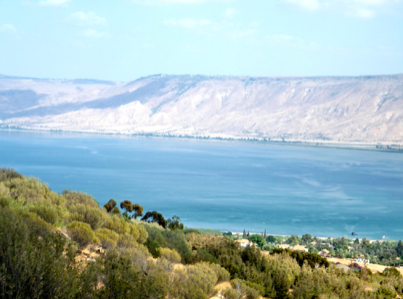
I still watch the Sea.
But it is with a different reason.
The endless waves still caress the beach.
They take me back to those times when our Savior said, “Follow Me.”
Our choice daily is whether we will or not.
My boys did.
They were not disappointed.
I couldn’t be prouder.
I’ve learned too— I must follow Him too. And submit to His will and not demand my own.
I sometimes must remind myself God’s in charge of when He sends fire, but I trust in His time.
Fire will again come.
But not today.
I write about what matters...to you---
women, wives and moms---
about your family, faith and future.
I write about what's hard, what helps and what heals.
I show you how it's done. And not done.
I hold your hand as you find what matters to the Savior.
And let go of those things that mattered to you, but not to Him.
I write about what matters...to Him.
Sonya Contreras
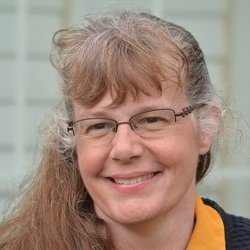
Author of Biblical fiction, married to my best friend, and challenged by eight sons’ growing pains as I write about what matters.
Receive weekly articles by giving your email address below:
